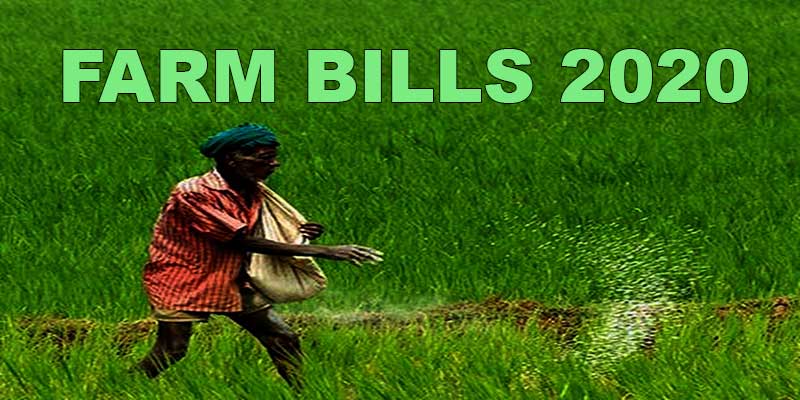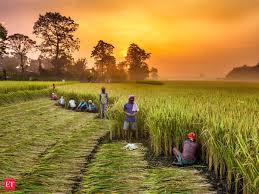The recent farmers’ bills that have been passed by both houses of the parliament have triggered various strong reactions in the form of protests, boycotts, disruptions of parliament sessions and other forms of disruptions. Scores of farmers have come out in protest against the bills, and have organised strikes. So, the main question here is- what do these bills contain, that have agitated farmers and the opposition MPs so much?
The farmers’ bills, that were passed by the Lok Sabha on the 17th September 2020, and subsequently passed by the Rajya Sabha on the 20th September 2020, are as follows:

- Farmers’ Produce Trade and Commerce (Promotion and facilitation) Bill, 2020.– This new bill now permits intra-state and inter-state trade of the farmers’ produce, without notifying or needing to use Agricultural Produce Market Committee (APMC) markets or other market notified under APMC. This allows outside trading and storing of the produce in areas such as farm gates, warehouses, silos, cold storages, etc. This bill enhances barrier-free interstate and intra state trading. This act also permits and facilitates online purchasing of the farmers’ produce. Furthermore, this act prohibits state governments from levying extra fees or taxes on farmers. Agriculture and farming falls within the concurrent list of jurisdiction, which means both the State Governments and the Central Government has the power to pass bills and ordinances in this domain. However, if a bill passed by a State Government(s) clashes or contradicts a bill passed by the Central Government, the Central Government’s bill or decision overrides that of the State Government(s).
- Farmers (Empowerment and Protection) Agreement on Price Assurance and Farm Services Bill, 2020. – This bill was promulgated by the Union Cabinet on the 5th of June, 2020, with an aim of promoting contract farming. Contract farming refers to agricultural production being done on the basis of contracts or agreements between the buyer and the farmers/farm producers. The agreement or contract can specify the required quality, the price, the agreed quantity and the agreed date of delivery of the produce. On top of that, these agreements/contracts can outline the conditions for the production of farm products and for their delivery to the buyer’s premises.
Furthermore, this act provides for a 3- level dispute resolution mechanism by the conciliatory board, the Sub-Divisional Magistrate and the Appellate Authority.
- Essential Commodities (Amendment) Bill, 2020. – This ordinance amends the Essential Commodities Act, 1955. This allows the Central Government to delist certain commodities as essential. These commodities include Cereals, Pulses, Onions, Edible Oils, Oilseeds, and Potatoes. Items that are not in the essential list are items that will not be regulated by the government in areas such as prices and supply. The government will only impose regulations in emergency situations such as famines, wars, extraordinary price rises, or natural calamities. This bill also states that there can be a regulation of prices from the government only if there is an increase of 100% or more in retail price in horticultural produce, and an increase of 50% in retail price in non-perishable agricultural food items. However, these restrictions are not applicable for foods and items that have been stocked and stored for public distribution in India.



